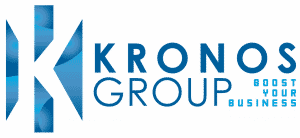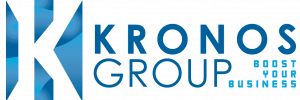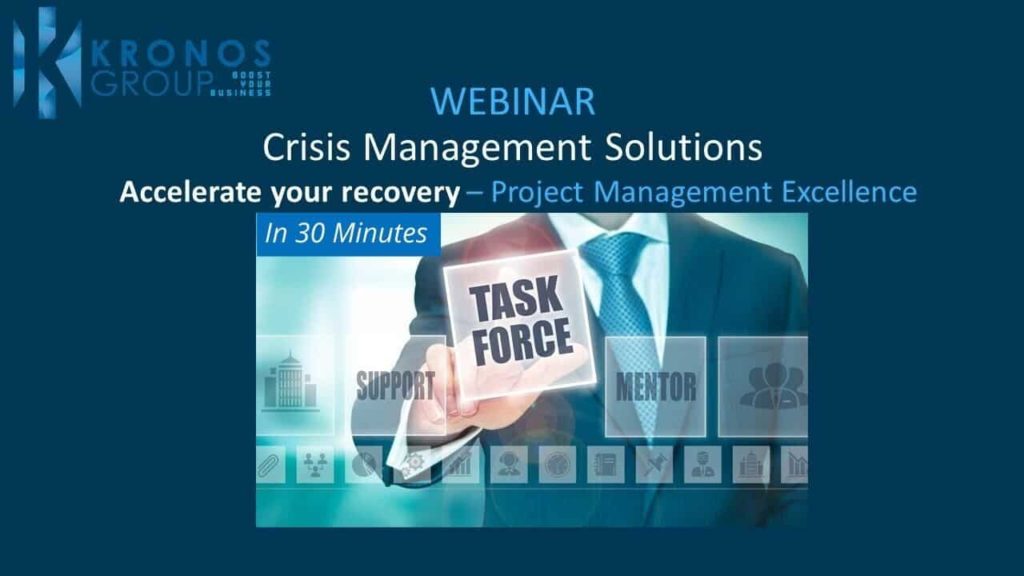How project management consulting helps companies shift from survival to innovation

Summary
Despite the ongoing belief that innovation experienced a boom during the events of 2020 and 2021 in response to the crisis, many companies halted innovation altogether during these months.
Research has shown that 31% of companies failed to innovate during this period. The reason for this is because many companies funnelled their resources towards surviving and staying afloat during the crisis as opposed to more long-term goals that innovation supports.
Why the shift from survival to innovation is necessary: This shift is necessary for many reasons. Because innovation is a critical aspect of building a competitive advantage, companies must continue to innovate in this landscape in order to survive. The less a company innovates, the less profitable it will become, leading to fewer resources to dedicate to research and development.
The value of professional consulting: Project management is known for its ability to inject higher value addition into any business. Boosting this function through professional consulting ensures that your resources are used efficiently and in targeted ways to ensure sustainable optimisation, the facilitation of industry best practices, accelerated crisis management and recovery, and a long-term project management strategy that supports your company long after the crisis passes.
It is safe to say that the events of the past two years, from the COVID-19 crisis to the ensuing after-effects of the vaccination rollout and global pandemic are settling in at this point in our global history.
In 2020, while the crisis was still in its infancy, there was a certain degree of optimism that remained and kept businesses and industries going through the motions. Now, in 2021, this optimism has, by and large, been replaced by a much more realistic understanding of what exactly the next few years may look like for companies and industries around the world.
As it is with any crisis, not everyone has felt the impacts of the crisis to the same degree. This is an inevitability but it has also gone unnoticed by many.
One of the main casualties has been innovation.
The overwhelming global feeling has been that innovation has taken over post-pandemic operations, with many companies not just turning to it as a solution, but using it to continue critical operations during the past few months.
The record expenditure on corporate ventures that have been recorded this year further leaned into this idea that companies were building their defences stronger and better, powered by innovation.
31% of companies, however, failed to innovate over the course of the unprecedented crisis.
This is likely because, in the midst of a crisis, companies tend to turn inwards and allocate resources towards survival as opposed to optimisation.
Surviving is especially critical for smaller companies to stay afloat while larger companies have more resource reserves to maintain some form of innovation even as a crisis takes place. Nearly two years on from the start of the crisis, however, companies need to shift from survival to innovation to continue their operations in the years to come.
Why the shift from survival to innovation is necessary
Businesses must make an active effort to shift from survival mode back to innovation as fast as possible for several reasons that go beyond staying competitive in the current market.
The longer companies fail to innovate, the riskier their position becomes in the market.
Because of the stiff competition that saturates the market, a company’s only competitive advantage is through innovation and capturing a niche in the market. Capturing and retaining this niche requires more continuous optimisation and innovation.
A failure to keep up likely means that a company’s bottom-line figures will suffer. Because most research and development budgets are allocated in direct correlation to a company’s profit margins, lower profit margins mean that a company has less to spend on research and development.
This is a vicious cycle that traps businesses, especially small and medium-sized companies that may need to watch their resources more carefully than their larger counterparts, in an ongoing battle to gather the resources that are needed to innovate.
A failure to innovate will then turn into a fight for business survival, sooner rather than later.
What this means is that companies, especially those that may struggle more with resource scarcity, must shift their focus to deriving as much value as possible from the resources they have at their disposal.
That is where project management consulting plays a critical role.
The value of project management consulting in supporting innovation
Project management is known for its higher value capabilities. Project management consulting is a sustainable method through which companies can ensure that their project management function is driving as much value as possible and making the most effective use of resources.
Choosing the right investments is critical, especially in the aftermath of a crisis. The multi-pronged value of project management consulting ensures that the investment made in these professional insights convert into sustainable optimisation, higher potential for value addition and creation, crisis management and recovery on an accelerated timeline, and much more.
With professional consulting, a company can cut out some of the uncertainty when it comes to navigating a crisis and benefit from direct, global industry best practices that are tailored to specific business operations.
This support helps companies maintain a long-term view of their business future without feeling consumed by the pressures of short-term survival.
In short, consulting can produce a high return on investment and can prove to be invaluable during a crisis for the strategic recovery of your operations.
Leverage professional consulting for a swifter recovery and a more innovative future
When shifting from survival to innovation, the concern for many businesses is ensuring that resources are funnelled towards ventures that can drive lasting value. This is especially critical during a long-term crisis that will have evolving repercussions.
With professional consulting services, you accelerate crisis recovery as well as facilitate the necessary shift to higher value addition in the form of innovation.
The insights you receive from your project management consultant can help you form a project management strategy that ensures sustained value long after your consultancy comes to an end.





